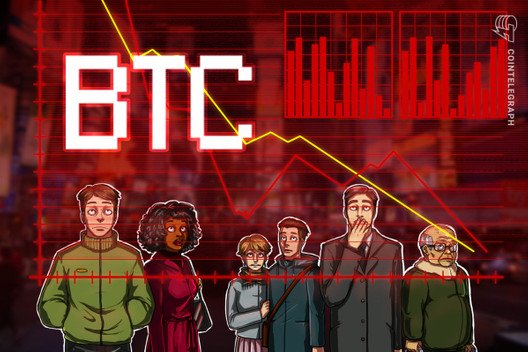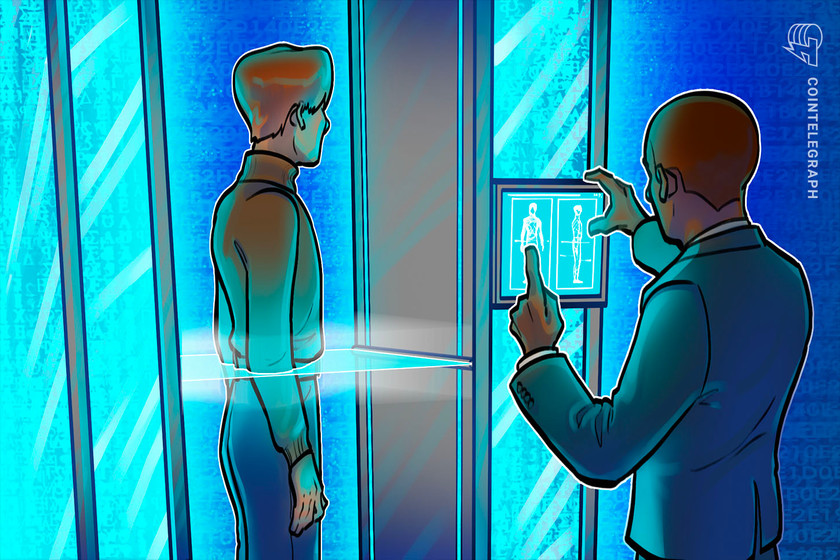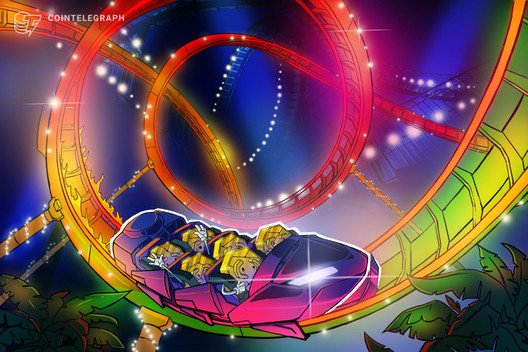‘There will be many more zeros’ — Kevin O’Leary on FTX-like collapses to come
The Shark Tank star said all unregulated exchanges are seeing “massive outflows” right now, and rightly so.
376 Total views
4 Total shares

Own this piece of history
Collect this article as an NFT
Unregulated crypto exchanges will continue to fall like dominoes post-FTX, with plenty more “meltdowns” to come, warns Shark Tank star and investor Kevin O’Leary.
O’Leary, a former spokesperson and proponent for the now-bankrupt FTX exchange, told Kitco anchor David Lin in a Jan. 17 interview that the collapse was just one in a long line of “unregulated exchanges” likely to fail:
“If you’re asking me if there’s going to be another meltdown to zero? Absolutely. 100% it’ll happen, and it’ll keep happening over, and over and over again.”
Unregulated exchanges are those that aren’t subject to regular auditing, aren’t registered and regulated by a securities commission, and don’t operate under rules similar to traditional stock exchanges and brokerages.
“Well, all of these exchanges, all the unregulated exchanges are having massive outflows right now. Smart money has got the joke. They saw what happened at FTX and they’re not sitting around for an explanation,” he said.
The Shark Tank star then made a stark warning to so-called “unregulated” crypto exchanges.
“If you’re not willing to be audited, […] you don’t have an audit, you don’t want to be transparent, you don’t want to disclose ownership, why should institutional capital stay? Of course, it’s not going to.”
The collapse of FTX in November prompted fierce calls from the community for greater transparency from crypto exchanges. Within weeks, five centralized exchanges completed their proof-of-reserve audits, while plenty more announced plans to do the same.
However, some observers, including a senior official from the United States Securities and Exchange Commission (SEC), warned that proof of reserves don’t paint a true picture of a company’s financial position and asked investors to be “very wary” of the claims being made.
Some of the auditors, such as Mazars have seemingly back-flipped on their support for crypto companies. In December, the company removed its audit for crypto exchange Binance and reportedly stopped doing proof-of-reserve audits for crypto companies altogether.
Other auditing firms such as FTX’s auditor Armanino have also reportedly stopped working with crypto exchanges like OKX and Gate.io. O’Leary commented:
“Frankly, you know, it’s very hard to find an auditor that wants to touch this stuff right now because of the unregulated cowboy environment. It’s all going to end and yes, there’ll be many more zeros.”
Earlier this month, O’Leary’s fellow Shark Tank host Mark Cuban told The Street that crypto wash trading on centralized exchanges will be the cause of the next crypto “implosion.”
As much as 70% of the volume on unregulated exchanges is wash trading according to a December report by the National Bureau of Economic Research (NBER).
Related: Binance ‘put FTX out of business’ — Kevin O’Leary
Despite the noise, O’Leary says he’s doubling down on his crypto investments, particularly in Bitcoin (BTC).
“I have been going back into crypto markets lately. Any time Bitcoin drops below $17,000 I add to our positions there.”
“Crypto is getting very interesting because we’re finally starting to see the bearer of regulation coming into play and I think long-term that’s a good thing,” he added.









